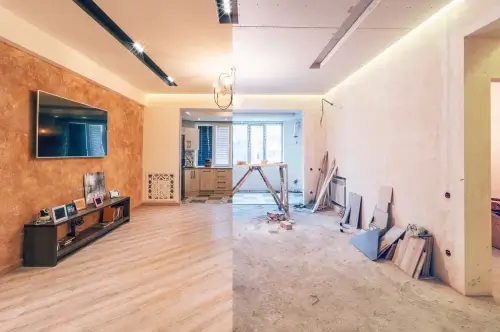
Do you envision transforming your current home into your ideal residence? Perhaps you're thinking about doing a substantial remodeling project or some badly needed renovations. These activities might be thrilling, but they frequently have a high cost. Fortunately, there are financial choices out today that can help you realize your renovation goals. This post will discuss various mortgage financing choices for house improvements.
1. Loan for Home Equity
A home equity loan is one well-liked method of financing home improvements. You can borrow money with this loan type if you have equity in your property. Your equity increases as you pay down your mortgage. You receive a flat sum of cash from the lender to utilize for remodeling.
Because your home is used as collateral for the loan, lenders consider these deals less risky than unsecured loans. The result is that home equity mortgages have lower interest rates than most other loan types. However, if you cannot repay the loan for any reason, you may lose your house.
2. HELOCs (Home Equity Lines of Credit)
A HELOC allows you to borrow money using the value of your property as collateral, much like a home equity loan does. It works more like a credit card, giving you access to a line of credit that you can use as needed rather than a lump amount payment.
3. Cash-Out Refinance
Cash-out refinancing involves replacing your current mortgage with a new one that's larger than your existing loan. You receive the monetary difference between the two sums, which you might put toward home improvements. If current interest rates are lower than on your existing mortgage, and if you have a sufficiently high credit score, this could be a smart option.
Budgeting is crucial because cash-out refinancing may result in an increase in your monthly mortgage payments. Consider the long-term financial effects carefully. It can also lengthen the time it takes to pay off your mortgage.
4. 203(k) FHA Loan
The FHA 203(k) loan is a special kind of mortgage that the Federal Housing Administration (FHA) offers that is intended only for house improvements. This loan combines the costs of home remodeling and home acquisition or refinancing. If you're buying a fixer-upper or looking to make big renovations to your present house, it can be a great option.
Be careful to do your research and speak with a lender who specializes in FHA 203(k) loans as they have distinct requirements and guidelines.
5. Individual Loan
Personal loans are an option to consider if you're scared to utilize your house as collateral. Since personal loans are unsecured, no security is required to secure them, such as your home. They have the advantage of not placing your home at risk, even if the interest rates on these loans are frequently higher than those on HELOCs or home equity loans.
Financing your home renovations and remodeling projects can be achieved through various mortgage options. Every choice has advantages and disadvantages, so it's critical to thoroughly consider your financial status and aspirations. To decide which choice is best for you, think about talking to a financial advisor or mortgage expert. Remember that responsible borrowing and budgeting are crucial to ensure your home renovation journey is a successful and enjoyable one. With the right mortgage option, you can transform your house into the home of your dreams.

